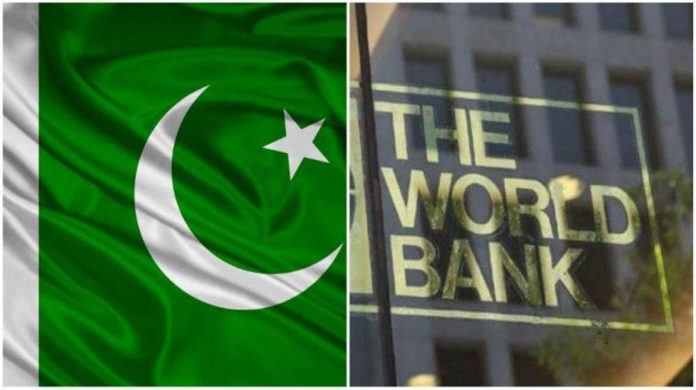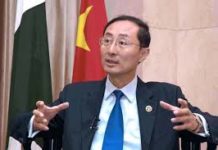Web Desk
The World Bank has approved $258 million to strengthen primary health care systems and accelerate national efforts towards universal health coverage in Pakistan, according to a statement issued by the international financial institution.
The National Health Support Programme “Complements ongoing investments in human capital and builds on health reforms that aim to improve quality and equitable access to healthcare services, especially in communities lagging behind national and regional-level health outcomes”.
The bank identified three areas of focus for healthcare reforms under the initiative: healthcare coverage and quality of essential services, governance and accountability and healthcare financing.
Elaborating on these areas, the statement said the programme focused on healthcare coverage and quality of essential services to ensure availability of adequate staffing, supplies and medicines and to enhance patient referral systems for expediting emergency and higher-level care.
Similarly, the focus on governance and accountability was intended to strengthen oversight and management of primary healthcare services through real-time monitoring of available supplies and essential medicines.
The statement further explained that initiatives in this area included setting up a central information platform for provincial authorities to assess gaps in service delivery across public and private healthcare facilities.
Moreover, the focus on healthcare financing was to improve the financial management of primary healthcare centres for better expenditure tracking and budget forecasting to sustain quality healthcare services and delivery.
“The programme will benefit all communities through improvements to provincial primary healthcare systems, particularly [those] in approximately 20 districts that suffer from having the least access to health and nutrition services,” the press release read.
According to the statement, the NHSP is co-financed by the International Development Association ($258 million) and two grants ($82 million) from the Global Financing Facility (GEF) for Women, Children and Adolescents (GFF), including a $40 million grant for protecting essential health services amid multiple global crises.
“The partnership between the GFF and the government of Pakistan focuses on building sustainable health systems while ensuring that all women, children and adolescents, especially in the most vulnerable communities can access the services they need amid multiple crises,” the statement quoted Monique Vledder, head of secretariat at GFF as saying.
“By investing in primary health care, strengthening the health workforce and equipping community health centres to both respond to emergencies and deliver quality services, Pakistan can drive a more equitable and resilient recovery,” she added.
World Bank Country Director for Pakistan, Najy Benhassine explained that “by strengthening provincial health systems, this programme is foundational to building the country’s human capital and improving health and nutrition outcomes for its citizens”.
“Pakistan continues to make strides in health reforms toward ensuring access to primary healthcare services, especially for children and women during pregnancy and childbirth,” he said.
Hnin Hnin Pyne, task team leader for the programme, said: “NHSP creates a national forum for the federal and provincial governments to exchange lessons and collaborate on achieving sustainable health financing and high quality and coverage of essential services. It also helps strengthen engagement between public and private facilities and better coordination among development partners on future investments in health.”















